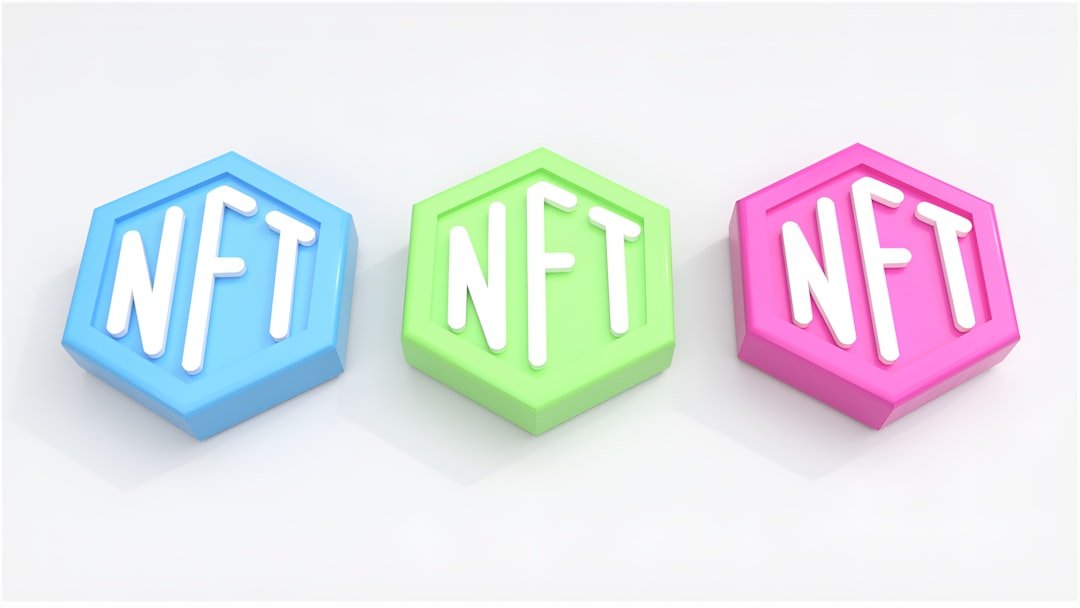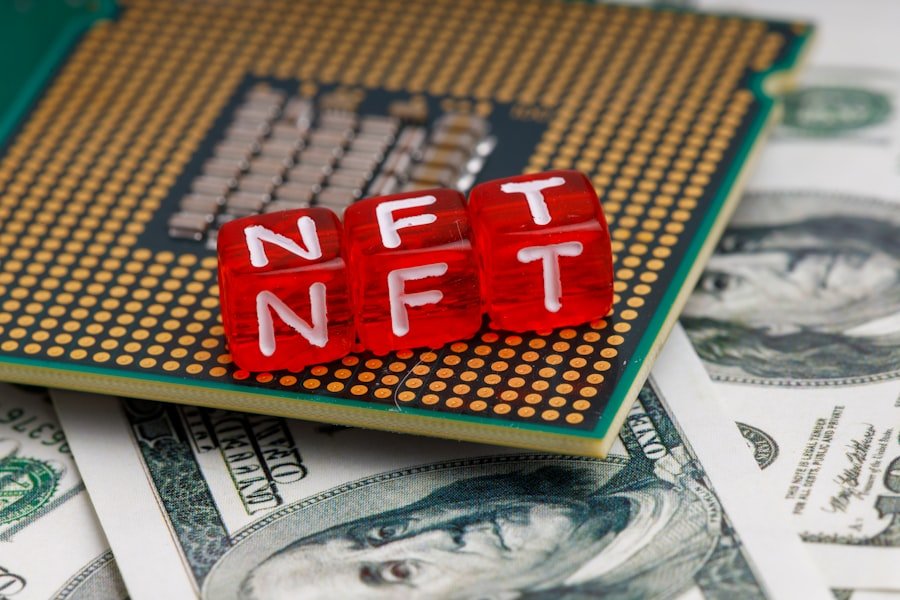Now Reading: The Quiet Disappearance of Blockchain in Gaming and Its Replacement
-
01
The Quiet Disappearance of Blockchain in Gaming and Its Replacement
The Quiet Disappearance of Blockchain in Gaming and Its Replacement

When I first encountered the concept of blockchain technology, I was captivated by its potential to revolutionize various industries, particularly gaming. The idea that players could truly own their in-game assets, trade them freely, and even earn real-world value from their virtual endeavors was exhilarating. In the early days, the gaming community buzzed with excitement as developers began to experiment with blockchain-based games.
Titles like CryptoKitties and Axie Infinity captured the imagination of gamers and investors alike, showcasing how blockchain could create unique, tradable assets that players could genuinely call their own. The promise of decentralization and transparency seemed to herald a new era for gaming, one where players had more control over their experiences. However, as quickly as the hype rose, it began to wane.
The initial enthusiasm for blockchain in gaming faced significant challenges. Many projects struggled to deliver on their promises, leading to skepticism among players and developers. The complexity of blockchain technology often alienated casual gamers who found the mechanics cumbersome and confusing.
Additionally, the environmental concerns surrounding blockchain mining and energy consumption became a hot topic, further dampening enthusiasm. As a result, many gaming companies began to distance themselves from blockchain initiatives, leading to a decline in interest and investment in this once-promising intersection of technology and entertainment.
Key Takeaways
- Blockchain technology initially promised to revolutionize the gaming industry but faced challenges and limitations leading to a decline in its adoption.
- Alternative technologies such as cloud gaming and edge computing have emerged as potential solutions to the limitations of blockchain integration in gaming.
- NFTs have had a significant impact on the gaming industry, allowing for unique in-game assets and new revenue streams for developers.
- The shift towards decentralized finance (DeFi) in gaming has the potential to disrupt traditional financial models and create new opportunities for gamers and developers.
- Security and scalability are crucial factors in the development and adoption of gaming technology, and will continue to be important as the industry evolves.
The Promise and Hype of Blockchain Technology
Reflecting on the early days of blockchain in gaming, I remember the overwhelming sense of optimism that permeated discussions about its potential. Blockchain technology promised a level of transparency and security that traditional gaming systems could not offer. The idea that every transaction could be recorded on an immutable ledger appealed to both developers and players.
I was particularly drawn to the notion that players could have true ownership of their digital assets, allowing them to trade or sell items without the constraints imposed by centralized servers. This shift in ownership dynamics was revolutionary, suggesting a future where players could monetize their time and effort in ways previously unimaginable. The hype surrounding blockchain technology was fueled by a wave of investment and innovation.
Startups emerged with ambitious plans to integrate blockchain into gaming ecosystems, creating new revenue models and gameplay experiences. I found myself intrigued by the potential for decentralized marketplaces where players could buy, sell, and trade assets seamlessly. The concept of play-to-earn games gained traction, promising players not just entertainment but also financial rewards for their engagement.
However, as I delved deeper into the landscape, it became clear that the reality of implementing blockchain technology was far more complex than the initial excitement suggested.
Challenges and Limitations of Blockchain Integration in Gaming

As I explored the challenges of integrating blockchain into gaming, I realized that the technology itself posed significant hurdles. One major issue was scalability; many blockchain networks struggled to handle the high transaction volumes typical in gaming environments. I often found myself frustrated by the slow transaction speeds and high fees associated with certain blockchains, which could disrupt gameplay and deter players from engaging with blockchain-based titles.
Additionally, the user experience was often lacking; many games required players to navigate complex wallets and private keys, creating barriers for those unfamiliar with cryptocurrency. Moreover, regulatory uncertainty loomed over the integration of blockchain in gaming. As governments around the world grappled with how to classify cryptocurrencies and digital assets, developers faced a precarious landscape.
I witnessed several promising projects stall or pivot away from blockchain due to fears of regulatory backlash or compliance issues. This uncertainty not only stifled innovation but also contributed to a growing sense of disillusionment within the gaming community. The initial excitement began to fade as developers struggled to find viable solutions to these challenges.
The Emergence of Alternative Technologies in Gaming
In light of the challenges faced by blockchain technology, I began to notice a shift towards alternative technologies within the gaming industry. Developers started exploring solutions that could offer similar benefits without the drawbacks associated with blockchain. For instance, cloud gaming emerged as a viable alternative, allowing players to access high-quality games without the need for powerful hardware.
This shift democratized access to gaming experiences, enabling a broader audience to engage with titles that were previously out of reach. Additionally, advancements in artificial intelligence (AI) and machine learning began to reshape game development processes. I found it fascinating how these technologies could enhance player experiences through personalized content and adaptive gameplay mechanics.
By leveraging AI, developers could create dynamic worlds that responded to player actions in real-time, offering a level of immersion that traditional gaming models struggled to achieve. As I observed these trends unfold, it became clear that while blockchain had its merits, other technologies were stepping up to fill the void left by its limitations.
NFTs and Their Impact on the Gaming Industry
As I continued my exploration of the gaming landscape, I couldn’t ignore the rise of non-fungible tokens (NFTs) and their impact on the industry. NFTs offered a unique solution to the problem of digital ownership, allowing players to buy, sell, and trade one-of-a-kind assets securely on the blockchain. I was intrigued by how NFTs could transform in-game items into valuable collectibles, creating new opportunities for players to monetize their investments in time and effort.
However, the NFT craze also brought its share of controversies. While some players embraced the idea of owning unique digital assets, others criticized it as a cash grab or a speculative bubble. I found myself grappling with these conflicting perspectives as I observed how different segments of the gaming community reacted to NFTs.
Some developers embraced NFTs as a way to enhance player engagement and create new revenue streams, while others remained skeptical about their long-term viability. This divide highlighted the ongoing tension between innovation and tradition within the gaming industry.
The Shift towards Decentralized Finance (DeFi) in Gaming

As I delved deeper into the intersection of gaming and finance, I became increasingly aware of the shift towards decentralized finance (DeFi) within the gaming ecosystem. DeFi platforms offered innovative solutions for players looking to earn passive income through staking or yield farming using their in-game assets. This new paradigm allowed gamers not only to enjoy their favorite titles but also to participate in financial activities that could enhance their overall experience.
I found it fascinating how DeFi could empower players by providing them with tools to manage their digital assets more effectively. By integrating DeFi principles into gaming platforms, developers could create ecosystems where players had greater control over their investments. This shift represented a significant departure from traditional gaming models, where players often felt powerless regarding their in-game purchases and assets.
As I observed this evolution unfold, it became clear that DeFi had the potential to reshape not only how we play games but also how we perceive value within virtual worlds.
The Role of Cryptocurrency in the Evolution of Gaming
Cryptocurrency has played a pivotal role in shaping the evolution of gaming over recent years. As I navigated this landscape, I recognized that cryptocurrencies provided an alternative means for players to transact within games without relying on traditional payment methods. This shift not only streamlined transactions but also opened up new avenues for monetization within gaming ecosystems.
I was particularly intrigued by how cryptocurrencies could facilitate cross-border transactions, allowing players from different regions to engage with one another seamlessly. This global accessibility represented a significant advantage for developers looking to expand their player base beyond geographical limitations. However, I also noted that volatility remained a concern; fluctuations in cryptocurrency values could impact player experiences and investment decisions.
As I reflected on these dynamics, it became evident that while cryptocurrency offered exciting possibilities for gaming’s future, it also introduced complexities that needed careful consideration.
The Importance of Security and Scalability in Gaming Technology
As I continued my exploration of gaming technology, I became increasingly aware of the critical importance of security and scalability in shaping player experiences. With the rise of online gaming and digital transactions, ensuring robust security measures became paramount for developers seeking to protect player data and assets. I often found myself reflecting on high-profile hacks and breaches that had shaken player trust in various platforms.
Scalability also emerged as a key concern; as player bases grew and transaction volumes surged, developers needed solutions capable of handling increased demand without compromising performance. I witnessed firsthand how lagging servers or slow transaction times could frustrate players and detract from their overall enjoyment. As I engaged with industry discussions around these issues, it became clear that addressing security and scalability would be essential for fostering sustainable growth within the gaming ecosystem.
The Potential for Virtual Reality and Augmented Reality in Gaming
As I looked towards the future of gaming technology, I couldn’t help but feel excited about the potential for virtual reality (VR) and augmented reality (AR) to transform player experiences further. These immersive technologies offered new dimensions for storytelling and gameplay mechanics that traditional formats struggled to achieve. I found myself captivated by VR’s ability to transport players into entirely new worlds where they could interact with environments in ways previously unimaginable.
AR also held immense promise; by overlaying digital elements onto the real world, AR games could encourage social interaction and exploration in unique ways. I was particularly drawn to how these technologies could enhance community engagement within gaming ecosystems, fostering connections between players both online and offline. As I observed developments in VR and AR gaming, it became evident that these innovations would play a crucial role in shaping the future landscape of interactive entertainment.
The Future of Blockchain and Its Influence on Gaming
Looking ahead at the future of blockchain technology within gaming, I remain cautiously optimistic about its potential impact on the industry. While challenges persist, ongoing advancements in scalability solutions and user experience design suggest that blockchain may yet find its place within mainstream gaming ecosystems. As developers continue experimenting with innovative applications for blockchain technology—such as decentralized identity verification or secure asset ownership—I believe we may witness a resurgence of interest in this space.
Moreover, as more players become familiar with cryptocurrencies and digital assets through mainstream adoption efforts—such as those seen with major companies entering the NFT market—I anticipate an increased willingness among gamers to engage with blockchain-based titles once again. While skepticism remains prevalent among certain segments of the community, I believe that education around these technologies will be key in fostering acceptance moving forward.
The Intersection of Gaming, Technology, and Finance
As I reflect on my journey through the evolving landscape of gaming technology and finance, it becomes clear that we are witnessing an unprecedented convergence between these domains. The integration of blockchain principles into gaming ecosystems has opened up new avenues for monetization while empowering players with greater control over their digital assets. At the same time, advancements in AI, VR/AR technologies are reshaping how we interact with games themselves.
This intersection presents exciting opportunities for innovation but also raises important questions about sustainability and ethical considerations within this rapidly changing environment. As someone deeply invested in both gaming culture and technological advancements, I find myself eager to see how these trends will continue unfolding over time—ultimately shaping not just our experiences as gamers but also redefining what it means to engage with interactive entertainment in an increasingly interconnected world.
If you’re interested in learning more about the gaming industry, you should check out the article Ultimate Gamer’s Guide to Everything. This comprehensive guide covers a wide range of topics related to gaming, including tips for beginners, strategies for advanced players, and insights into the latest trends in the industry. It’s a must-read for anyone looking to level up their gaming skills and stay ahead of the curve.



























